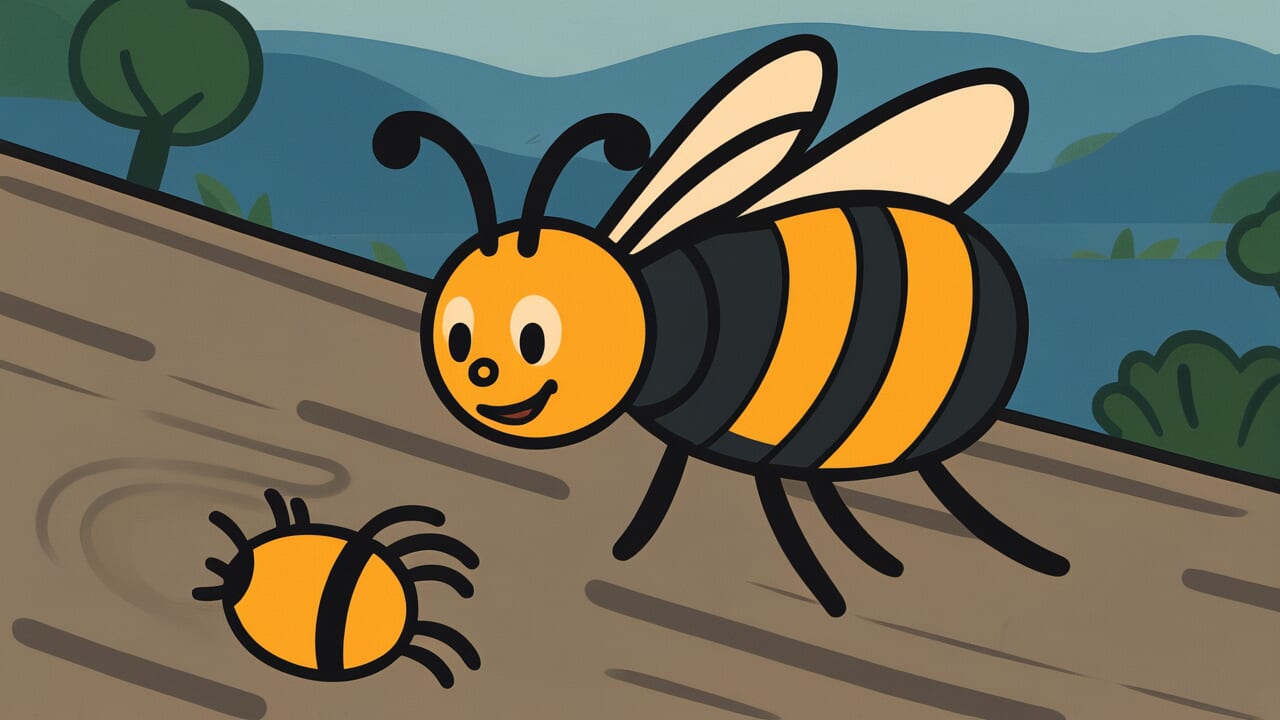How to Read “The horsefly also doesn’t catch”
Abu mo takarazu
Meaning of “The horsefly also doesn’t catch”
“The horsefly also doesn’t catch” is a proverb that describes a state of being completely ignored by everyone, with no popularity at all.
Horseflies are insects that instinctively approach animals and humans to suck blood. The saying means that a person or thing is so unattractive that even horseflies won’t come near.
This emphasizes an extreme lack of appeal where nobody wants to approach.
This proverb is used to describe situations where people or things are completely abandoned. It applies when a store has no customers, an event attracts no participants, or a person receives no attention from anyone.
By referencing a specific creature like the horsefly, the saying conveys the situation far more vividly than simply saying “unpopular.”
The expression that even troublesome horseflies avoid something highlights just how thoroughly unpopular it is.
Even today, people use this phrase with irony or self-deprecation to express extreme unpopularity or deserted conditions.
Origin and Etymology
No clear written records remain about the origin of this proverb. However, we can make interesting observations from how the phrase is constructed.
Horseflies are known as insects that suck blood from livestock like cattle and horses, as well as from humans.
Since ancient times in Japanese farming villages, horseflies were a familiar presence in daily life with livestock. Horseflies instinctively approach animals and humans, landing on skin to suck blood.
Everyone knew from experience just how persistent they could be.
The word “takaru” is a verb that describes how insects land on something and won’t leave. For insects like horseflies, landing on something to feed is unavoidable behavior necessary for survival.
The expression that even horseflies, which perform such instinctive and inevitable actions, won’t approach something represents an extremely strong negation.
This proverb uses the habits of horseflies, insects familiar to everyone, to vividly express a state where nobody pays attention to someone.
A metaphorical expression born from everyday observation became established as words describing the cold reality of human relationships.
It’s considered one of the proverbs born from the wisdom of common people, condensing the lived experience of farming society.
Usage Examples
- Even though it’s a newly opened store, the horsefly also doesn’t catch there, so I’m worried about the business
- Since the scandal, that politician has been in a state where the horsefly also doesn’t catch
Universal Wisdom
The proverb “The horsefly also doesn’t catch” contains deep insight into the cruelty of reputation and popularity in human society.
Everyone has a fundamental desire to be recognized and needed by others. However, in reality, situations exist where people are avoided and isolated for various reasons.
This proverb shows just how thorough such a state can be.
The expression that even troublesome horseflies won’t approach means more than simple unpopularity. It signifies a state of complete abandonment.
What’s interesting is that this proverb captures the essence of “group psychology” in human relationships.
Once reputation falls, people tend to leave in an avalanche. Where nobody approaches, even fewer people will come.
This negative cycle resembles instinctive herd behavior more than rational judgment.
Our ancestors saw through this cold aspect of human society. This proverb teaches how fragile popularity and reputation are, and how difficult they become to recover once lost.
At the same time, it may also suggest from the reverse side the importance of not being fooled by superficial popularity and having eyes that see the essence.
When AI Hears This
This situation of chasing horseflies while missing hawks becomes surprisingly clear when expressed as an equation.
Suppose the probability of catching a horsefly is 80 percent with a value of 1, and the probability of catching a hawk is 30 percent with a value of 10.
The expected value for the horsefly is 0.8, while for the hawk it’s 3. Yet the human brain gets dragged by the certainty of “the horsefly right in front of me” and abandons the expected value calculation.
What’s even more interesting is that the “sunk cost fallacy” activates the moment you start chasing the horsefly.
For example, after chasing for 5 seconds, those 5 seconds cannot be recovered. The brain then judges, “I’ve chased this far, so I’ll lose out if I don’t catch it.”
But economically, the 5 seconds spent in the past are unrelated to future decisions. What matters is only comparing the value of continuing to chase the horsefly “from this moment” versus switching to the hawk.
Research by behavioral economist Kahneman shows that humans feel losses twice as strongly as gains.
The pain of the small loss of missing the horsefly outweighs the appeal of the large gain of the hawk. People in the Edo period intuitively understood this irrationality without equations.
The same trap exists for us today when we keep responding to smartphone notifications and miss important work.
Lessons for Today
What this proverb teaches us today is the fragility of reputation and popularity, and the importance of having the strength not to be swayed by them.
From one perspective, if you’re trying to start something, you should understand how important first impressions and momentum are.
People tend to gather where others are gathering and avoid places that look deserted. The effort and ingenuity you put in at the start greatly influences what follows.
At the same time, this proverb offers the opposite lesson. Something truly valuable might be hidden among things the world ignores.
Just because many people avoid something doesn’t necessarily mean it lacks value. It’s important to have the ability to see the essence with your own eyes rather than flowing with superficial popularity.
And most importantly, even if you find yourself in a state where “the horsefly also doesn’t catch,” know that it’s not permanent.
Situations can be changed. By accumulating sincerity and effort, you can gradually regain trust.
People’s evaluations are fickle, but precisely because of that, your own value isn’t determined solely by others’ evaluations.



Comments